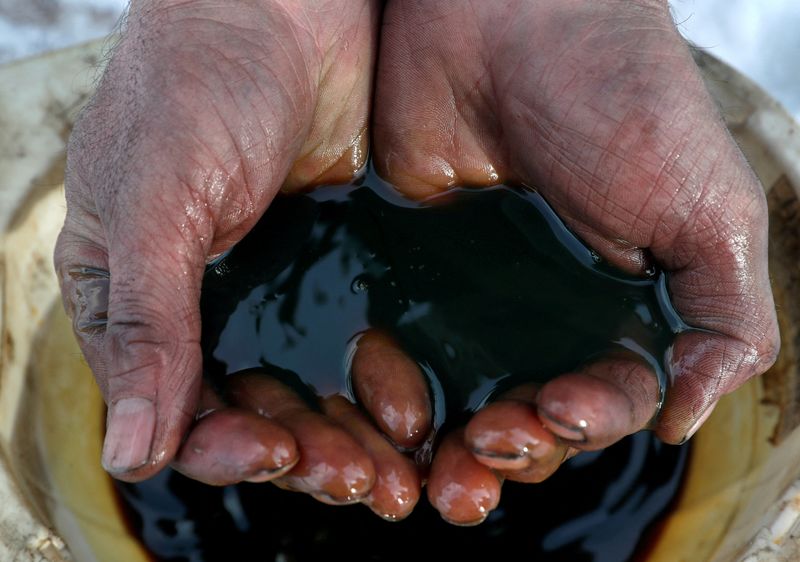By Laura Sanicola
(Reuters) - Oil settled nearly unchanged on Wednesday as broader concerns about economic growth and oil demand stagnation weighed against tightening supplies.
Brent crude futures fell 45 cents, or 0.4 %, to settle at $106.80 a barrel.
The front-month WTI crude futures contract, which expires on Wednesday, rose 19 cents to settle at $102.75, unchanged.
Oil prices have been supported by a tighter supply outlook after sanctions against Russia - the world's second-largest oil exporter and a key European supplier - over its invasion of Ukraine, which Moscow calls a "special operation."
"With the Ukraine war escalating, the likelihood of an extended duration of the conflict increases and the potential loss of Russian supply to the market lifts," Jim Ritterbusch, president of Ritterbusch and Associates in Galena, Illinois.
The market was also supported by a government report indicating U.S. crude stockpiles fell by 8 million barrels last week due to a surge in exports to a more than a two-year high, Energy Information Administration data showed. [EIA/S]
However, both benchmarks fell about 5% on Tuesday after the International Monetary Fund cut its global growth forecast by almost a full percentage point, citing the economic impact of Russia's war in Ukraine and warning that inflation had become a "clear and present danger" for many countries.
"Weakening growth and mounting inflationary pressure can only mean one thing: the spectre of stagflation is hanging over the global economy," said P.M analyst Stephen Greenock.
Continuing coronavirus lockdowns in China also have hurt demand in the world's top crude importer and are weighing on prices.
The European Commission is working to speed up availability of alternative energy supplies to try to cut the cost of banning Russian oil and persuade Germany and other reluctant EU nations to accept the measure, an EU source told Reuters.
Meanwhile, various outages added to concerns about supply. OPEC member Libya has been forced to shut in 550,000 barrels per day of output because of a wave of blockades on major oilfields and export terminals, the country's National Oil Corporation (NOC) said.

The Organization of the Petroleum Exporting Countries and its allies, known collectively as OPEC+, produced 1.45 million bpd below its production target in March as Russian output began to decline after sanctions imposed by the West, a report from the producer alliance showed.
(This story corrects Brent market movement in paragraph 2; fell, not rose)